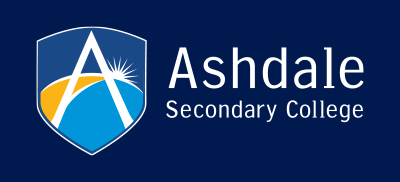Humanities and Social Sciences (HaSS) studies human behaviour and interaction in social, cultural, environmental, economic and political contexts. Humanities and Social Sciences have a historical and contemporary focus, from personal to global contexts, and consider opportunities and challenges for the future.
In the Western Australian Curriculum, the Humanities and Social Sciences learning area comprises four subjects: Civics and Citizenship, Economics and Business, and Geography and History.
By studying Humanities and Social Sciences, students will develop the ability to question; think critically; make decisions based on evidence; devise proposals for actions; and communicate effectively.
Thinking about, reflecting on, and responding to issues requires understanding the key historical, geographical, political, legal, economic, business and societal factors involved and how these different factors interrelate.
The Humanities and Social Sciences subjects provide students with the knowledge and skills they need to develop a broad understanding of the world in which we live and how people can participate as active and informed citizens in the 21st Century.
Years 7-10 HASS
Humanities and Social Sciences is a diverse learning area where students will study human behaviour and interactions in social, cultural, environmental, economic and political contexts.
Humanities and Social Sciences at Ashdale Secondary College follows the West Australian Curriculum and covers four subject areas:
- Geography
- History
- Civics and Citizenship
- Economics and Business
Students in Years 7-10 will spend one term per year on each of the four areas developing their knowledge and understanding of the different subjects.
By studying Humanities and Social Sciences, students will also develop the skills to be confident communicators, critical thinkers and creative problem-solvers for the local and global issues our world faces. These skills are taught focusing on contemporary matters such as sustainability, civic responsibilities, equity, social justice and Australia’s place in Asia and the wider world.
Students will be encouraged to develop their sense of wonder, curiosity and respect for places, people, cultures, events, ideas and environments worldwide. This is driven by relevant and engaging lessons, field trips, guest speakers and numerous extra-curricular opportunities available to Ashdale Secondary College students.
Senior School HASS
Within the HASS learning area, students can choose from many exciting and valuable subjects in both ATAR and general pathways. We offer Geography, Modern History, Politics and Law, and Economics courses.
We recommend a minimum of a B Grade in Year 10 HASS for all ATAR options.
ATAR
ATAR Geography
The study of ATAR Geography draws on students’ curiosity about the diversity of the world’s places and their peoples, cultures and environments. It provides students with the knowledge and understanding of the nature, causes and consequences of natural and ecological hazards, international integration in a range of spatial contexts, land cover transformations, and the challenges affecting the sustainability of places.
- Unit One – Natural and Ecological Hazards
- Unit Two – Global Networks and Interconnections
ATAR Modern History
Studying the Modern History ATAR course enables students to become critical thinkers and helps inform their judgements and actions in a rapidly changing world. Students are exposed to various historical sources, including government papers, extracts from newspapers, letters, diaries, photographs, cartoons, paintings, graphs and secondary sources, to determine the causes and effects, and motives and forces influencing people and events.
- Unit One – Understanding the Modern World
- Unit Two – Movements for Change in the 20th Century
ATAR Politics and Law
The Politics and Law ATAR course studies decision-making processes concerning society’s collective future. It aims to develop the knowledge of principles, structures, institutions and processes of political and legal systems primarily in Australia. It brings together the executive, legislative and judicial branches of government to demonstrate how society is governed and how each branch of government is held to account.
- Unit One – Democracy and The Rule of Law
- Unit Two – Representation and Justice
ATAR Economics
Economics explores the choices that all people, groups and societies face as they confront the ongoing problem of satisfying their unlimited wants with limited resources. The Economics ATAR course aims to develop students’ ability to analyse the allocation, utilisation and distribution of scarce resources that determine our wealth and well-being. The study of Economics provides a framework for examining society’s issues and identifying possible solutions which assist decision-making.
- Unit One – Microeconomics
- Unit Two – Macroeconomics
NON-ATAR
The HASS department offers General courses in Geography and Modern History and a Certificate II in Tourism for students looking for a vocational pathway.
General Modern History
Studying this course exposes students to various historical sources, including government papers, extracts from newspapers, letters, diaries, photographs, cartoons, paintings, graphs and secondary sources, to understand the historical narrative, including cause and effect, and the forces influencing people and events. Through historical inquiry, students are encouraged to question historical sources, identify various representations and versions of history, and communicate their findings in multiple ways.
- Unit One – People, Place and Time
- Unit Two – Power and Authority
General Geography
In this course, students learn to collect information from primary and secondary sources such as field observation, mapping, case studies and reports. Geography, as a discipline, values imagination, creativity and speculation as modes of thought. It develops students’ knowledge about the interconnects between places and explores at-risk environments. Students learn about the protection of such environments through local, regional and global management.
- Unit One – Geography of Environments at Risk
- Unit Two – Geography of People and Places


